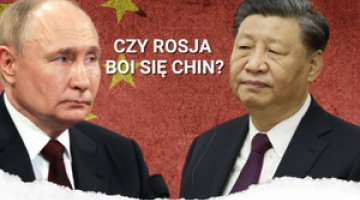Umarov takes responsibility for the attack on Domodedovo airport
In a video published on 7 February on a website used by Caucasian guerrillas, Dokku Umarov, the leader of the so-called Emirate of the North Caucasus, admitted that he ordered the terrorist attack on Moscow’s Domodedovo airport on 24 January (in which 36 people died), and announced further attacks. This statement should be considered as reliable. This confirms that, despite the split that occurred in the Caucasian armed underground last autumn, the Emirate – a virtual Islamic ‘state’ covering the entire region – is still in a position to engage in large-scale terrorist activities, and Umarov has managed to maintain his dominant position among the fighters. This means a real and substantial threat to Russia’s security.
Two announcements by Umarov
With the statement of 7 February, it appears that the guerrillas are fighting not only with Russia, which is "occupying the North Caucasus", but also with "the enemies of Allah", a move which brings the Emirate’s activities into the field of global jihad (among other matters, Umarov mentioned the breakup of Sudan; in his view, this took place under pressure from Israel and the USA, who want to take control of the country’s energy resources). It cannot be ruled out that Umarov was seeking financial support from possible sponsors in the Arab world in this manner. The Emirate’s leader also said that he has hundreds of volunteers ready to carry out further suicide attacks, at any time and place.
Umarov’s latest statement appeared three days after a previous one, published on the same website, in which he announced "a year of blood and tears" for Russia, and appealed to the Russian public to force the government to withdraw from the Caucasus and cease the harassment of representatives of the Caucasian peoples. Umarov was accompanied in this recording by Emir Hamzat, the "leader of the Riyad al-Salihin Brigade", whose alleged function is to deal with the recruitment and training of suicide bombers (on this occasion, the leader of the Emirate numbered them at between 50 and 60 people), and a young man preparing himself for a suicide attack (it is not known for which specific attack, but it cannot be ruled out that he was the one who attacked Domodedovo airport).
It is difficult to say when these two statements were recorded. The video published on 4 February is not dated, but if it does indeed present the Domodedovo attacker, it must have been made before 24 January. The film posted on 7 February, according to the words of Umarov himself, was recorded on the day of the attack (just after its completion). Admitting the attack two weeks after the fact is a typical practice of the Emirate: the time is needed to transfer the recordings safely to the website’s host, and also to allow the attacker’s collaborators time to return to the Caucasus.
A schism within the Emirate prevented?
Both of Umarov’s statements suggest that he is now the unquestioned leader of the Caucasian guerrillas, and that his opponents, led by Husein Gakayev, have been effectively marginalised.
At the beginning of October 2010 Gakayev and several influential commanders forsook their allegiance to Umarov (the Emirate has never been a centralised structure, as it is and always has been an ‘umbrella’ under which groups of militants operate, enjoying much independence, while formally recognising Umarov’s leadership). Gakayev was at the forefront of the so-called State Committee Of Defence, or Shura Mejlis. Declarations by Gakayev’s guerillas have shown that they have not rejected the idea of the Emirate (that is, the struggle for the Caucasus’ final separation from Russia, and the establishment of an Islamic state there governed by sharia law); but they also acknowledge the right of the Caucasian peoples to self-determination (for the young Chechen fighters, a struggle for a free Chechnya seems more attractive than a fight for an abstract transnational entity). Gakayev has also accused Umarov of passivity and delaying tactics.
Support for Gakayev has been expressed by Akhmed Zakayev, the Prime Minister of the unrecognised ‘Chechen Republic of Ichkeria’; Zakayev delivered his plenipotentiary document to Gakayev with his own hands. Zakayev, who represents the pro-independence, mostly émigré Chechen elites, became ‘prime minister’ in autumn 2007 – after Umarov forswore the national liberation struggle, resigned as ‘president’ of Ichkeria, announced the creation of the ‘Emirate’ covering the entire region, and appointed himself its leader or ‘emir’.
The increase in the guerrillas’ activity in the summer and autumn of 2010 was most likely the result of the rivalry between Gakayev and Umarov. Everything indicates that Umarov organised the attack on Tsentoroy, the family village of Chechnya’s leader Ramzan Kadyrov, last 29 August. In turn, Gakayev was responsible for the attack on the Chechen parliament (19 October). It seems Gakayev was not able to win the larger guerrilla group over to his side, because he was unable to guarantee them their own independent sources of funding, or the favour of the pro-militant websites.
The avoidance of a division within the Emirate certainly increases the threat to Russian security. At the same time, the attack on Domodedovo airport has demonstrated that the strong, often very brutal methods endorsed by Prime Minister Vladimir Putin to combat Caucasian separatism have not produced the expected results.
Conclusions
1. If the Emirate of the North Caucasus is really behind the attack on Domodedovo airport, and everything appears to show that this is the case, this indicates the significant terrorist potential of this structure. Dokku Umarov’s leadership of the Caucasian armed underground now seems beyond doubt.
2. Further attacks on targets in central Russia seem probable. While the Emirate does not really have the means to carry out such spectacular attacks as Domodedovo regularly (the last attack of a comparable scale took place in March 2010 on the Moscow subway), it cannot be ruled out that its military capability will be strengthened. The Emirate’s activity must be a major concern for the authorities in the face of the upcoming Winter Olympics in Sochi, scheduled for the year 2014.
3. The Emirate should be expected to attempt to exploit the ethnic tensions which have been rising in recent weeks in major Russian cities. In the 4 February statement, Umarov spoke of the persecution of people from the Caucasus in Moscow and other cities, and suggested that there may be retaliation.
4. In the 7 February statement, Umarov clearly included the activities of the Emirate in the context of global jihad. On one hand, this may win supporters for the Caucasian underground among fundamentalist environments worldwide; on the other, however, this will justify the arguments of Moscow, which for years has argued that it has been fighting international terrorism in the North Caucasus.





